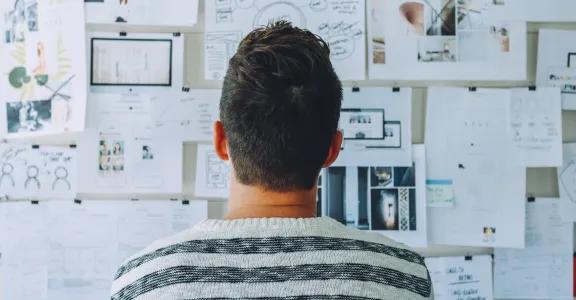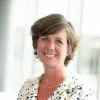Focus on recovery from the crisis in 2021
2020 was a year full of huge, unseen challenges. The Sirris annual report - unveiled today, 22 June 2021 - shows that many Belgian companies view the crisis as a good opportunity to innovate. This could well be an essential survival reflex.
2020 brought about a tsunami of change worldwide and many companies, including in Belgium, had to face unseen challenges: the pandemic itself, of course, but also accelerated digitisation and an increased focus on sustainability, to name but two of the trends. In 2020, Sirris was ready to support companies and face their challenges together.
Strategic investment in the future
In 2020, Sirris started no less than 1,149 innovation projects and worked with 1,209 Belgian companies. Despite the crisis, Sirris invested a total of € 1,114,381 in new high-tech infrastructure to provide services to their customers. This last year clearly shows that periods of exceptional crisis also result in unique opportunities. For example, the Innovaders platform (www.innovaders.be), launched by Sirris and nine other collaborative centres in mid-2020. This joint effort aims to build a bridge between the worlds of research and development and corporate, across various industries.
Now the recovery is underway, it is time to invest strategically in the future. Sirris invests together with the companies they support, by developing new products, discovering new technologies, implementing efficient and sustainable production methods and exploring new business models.
These innovation projects can be roughly classified into three fields: Product of the Future, Factory of the Future and Business of the Future.
Smart, connected products
For example, a Product of the Future is all about applying sensing technology and the development of smart and connected products. In 2020, one of the companies supported by Sirris was EuroSign, a traffic sign manufacturer in Fernelmont near Namur, who develop connected traffic signs. Their project on smart traffic signs could revolutionise the market.
Sirris and LifeLine joined forces to design the first wearable with a satellite transmitter, capable of relaying an SOS message in areas with a poor mobile signal. Commercialisation is in development for this life-saving smart wearable for sportspeople and the adventurous, driven by their passion for faraway places.
Circular, future-proof business
Technological start-up Glooh has grown significantly in a very short period of time. They were considering whether they were on the right path and whether their operations were future-proof. The company required the perspective of an experienced outsider, so it reached out to Sirris.
3E helps industrial companies to optimise the production and use of (renewable) energy. 3E has developed an online monitoring platform for the latter. Accurate asset configuration is required to connect wind turbine and solar panel farms to the platform. This is a time-consuming, manual and error-sensitive process. A thorough error detection system was already in place, but to find ways to take further advantage of the error data, they set up a research project in conjunction with Sirris. The objective was to provide recommendations to farms where errors were observed in the import of data. The study showed that the most effective approach is one based on artificial intelligence.
Q-lite designs, manufactures and delivers LED and LCD displays, used as information screens, scoreboards, traffic signs, etc. This company is implementing the circular economy approach. They participated in the Circular Economy Connect learning network organised by Sirris and Agoria. It clearly inspired them, as Q-lite is working with Sirris to rethink their current packaging. Q-lite reduced their residual waste by no less than 30% in 2020.
Factory of the future
Food manufacturer Vandemoortele wanted to optimise their production using cobots. The company did not possess the experience required. Sirris set up a testing protocol at its application laboratory. The tests showed there was sufficient potential for the application Vandemoortele wished to automate using cobots. The test set-up ensured that Vandemoortele could work on the next cobot implementation stage with confidence and with limited risk.
Altachem is a market leader in the development and manufacturing of aerosol valves and foam applicators. This company was looking at boosting its growth by installing an additional production line. The current working method and the space available were thought of as an obstacle. Altachem and Sirris worked together to find the logistics concept best suited to the expansion of production. This concept was then evaluated in the Sirris application lab. Although some details still remain to be finalised, the results of this study are enabling Altachem to make a well-informed strategic decision on the next steps in this process.

